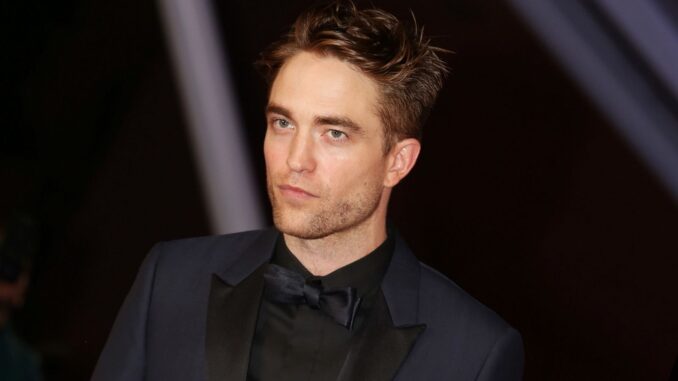
From the Gleam of Glitter to the Shadow of the Bat: Robert Pattinson’s Journey to Icon
The trajectory of an actor's career is often a complex dance between public perception and artistic ambition. For Robert Pattinson, this dance has been nothing short of a fascinating spectacle, a deliberate and remarkable evolution from the glistening, angst-ridden vampire, Edward Cullen, to the rain-soaked, brooding vigilante, Bruce Wayne. These two roles, diametrically opposed in their aesthetic and emotional landscapes, stand as monumental pillars in his filmography, each iconic in its own right, and together, they illustrate a masterclass in defying expectations and forging a unique artistic identity.
For a generation, Robert Pattinson was undeniably Edward Cullen. The release of Twilight in 2008 catapulted him into a stratosphere of global stardom usually reserved for pop idols. As the eternally young, supernaturally strong, and tragically romantic vampire, Pattinson embodied the quintessential teen heartthrob. His pale skin, piercing gaze, and a perpetual air of tortured longing captivated millions, turning him and the franchise into a cultural phenomenon. Edward Cullen became an icon of young adult romance, a figure of desire and fantasy, and for many, the very face of supernatural love stories. The role was a golden cage – immensely popular, commercially lucrative, but also intensely typecasting. The image of the "sparkly vampire" became inextricably linked to Pattinson, a shadow that threatened to define his entire career. He played the part with a captivating, almost otherworldly stillness, yet one could sense, even then, a flicker of something more complex beneath the surface, a hint of the actor yearning for darker, grittier challenges.
The years immediately following the Twilight saga were crucial. Instead of chasing more blockbusters or similar romantic leads, Pattinson embarked on a deliberate, almost defiant, artistic detour into independent cinema. This period, often overlooked but utterly essential, saw him shed the shackles of glitter for the grime and grit of auteur films. He worked with visionary directors like David Cronenberg (Cosmopolis, Maps to the Stars), the Safdie Brothers (Good Time), Claire Denis (High Life), and Robert Eggers (The Lighthouse). In these films, he transformed, often physically, into characters that were messy, morally ambiguous, and profoundly human – a corporate shark trapped in a limo, a desperate bank robber on the run, a spaced-out astronaut, or a tormented lighthouse keeper. It was in this crucible of indie cinema that Pattinson honed his craft, proving his immense versatility and commitment to challenging roles. He traded commercial appeal for critical respect, quietly building a foundation of undeniable acting chops that prepared him for his next iconic leap.
And then came the seismic announcement: Robert Pattinson would be the next Bruce Wayne, the Caped Crusader in Matt Reeves’ The Batman. The initial reaction, for many, was a jarring echo of the Edward Cullen era. Skepticism abounded, fueled by lingering memories of the "sparkly vampire." Yet, Pattinson, now a seasoned actor with a decade of intense, character-driven performances under his belt, approached the role with a gravitas and intensity that silenced the doubters. His Bruce Wayne was not the polished playboy or the stoic superhero we had seen before. This was a younger, rawer, more broken figure, consumed by vengeance and barely distinguishable from his alter-ego.
Pattinson’s Batman is an icon for a new generation precisely because of its visceral realism and psychological depth. He is a detective in the truest sense, navigating the rain-slicked, corrupt streets of Gotham with a quiet, brooding intensity. His performance stripped away the bombast, revealing the raw nerve beneath the cowl – the trauma, the isolation, the relentless drive for justice. This Bruce Wayne isn't a symbol of hope but a force of nature, an almost feral embodiment of urban despair. The film, and Pattinson’s portrayal, resonated deeply, offering a fresh, darker perspective on one of pop culture’s most enduring figures. He didn't just play Batman; he became him, embodying the very essence of a man haunted by shadows, much like his own journey to shed the shadow of his first iconic role.
From the almost otherworldly elegance of Edward Cullen to the grounded, visceral rage of Bruce Wayne, Robert Pattinson’s career illustrates a profound and masterful act of reinvention. These two roles, though worlds apart, are iconic for their cultural impact and for the way Pattinson imbued them with a unique, unforgettable presence. Edward Cullen launched him; Bruce Wayne solidified him. In between these two towering figures lies a testament to artistic resilience, a strategic navigation of a demanding industry, and the powerful truth that sometimes, the most iconic journeys are forged not by following the expected path, but by fearlessly carving out your own. He didn't just play two iconic characters; he transformed the very notion of what Robert Pattinson could be.
